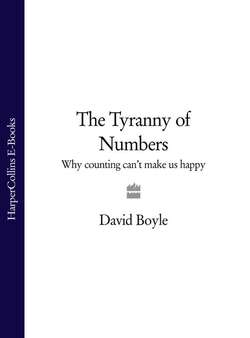Читать книгу The Tyranny of Numbers: Why Counting Can’t Make Us Happy - David Boyle - Страница 22
II
Оглавление‘Oh the sad condition of mankind,’ moaned the great Belgian pioneer of statistics, Adolphe Quetelet. ‘We can say in advance how many individuals will sully their hands with the blood of their neighbours, how many of them will commit forgeries, and how many will turn poisoners with almost the same precision as we can predict the number of births and deaths. Society contains within it the germ of all the crimes that will be committed.’
It’s a frightening thought, just as it was frightening for Quetelet’s contemporaries to hear him say it in the 1830s. But he and his contemporaries had been astonished by how regular the suicide statistics were. Year after year, you seemed to be able to predict how many there would be. There were the occasional bumper years, like 1846, 1929 and other economic crash periods, but generally speaking it was there. People didn’t seem to be able to help themselves. Amidst a constant number of individuals, the same number would take it into their heads to murder as much as get married. Statistics were powerful.
Quetelet was among the most influential of the statisticians trying to solve the confusion of politics by ushering in a nice clean, unambiguous world, urging that we count things like the weather, the flowering of plants and suicide rates in exactly the same way. ‘Statistics should be the dryest of all reading,’ Bentham’s young disciple William Farr wrote to Florence Nightingale, explaining that they could predict with some certainty that, of the children he had registered as having been born in 1841, 9,000 would still be alive in 1921.
To help the process along, Quetelet invented the dryest of all people – the monstrous intellectual creation, l’homme moyen or Average Man. Mr A. Man is seriously boring: he has exactly average physical attributes, an average life, an average propensity to commit crime, and an average rather unwieldy number of children – which used to be expressed as the cliché 2.4. But Average Man only exists in the statistical laboratory, measured at constant room temperature by professional men with clipboards and white coats. The whole business of relying on numbers too much goes horribly wrong simply because Mr Average is the Man Who Never Was – counted by people who know a very great deal about their profession or science but precious little about what they are counting. The Man Who Never Was measured by the Men Who Don’t Exist. It’s the first and most important paradox of the whole business of counting:
